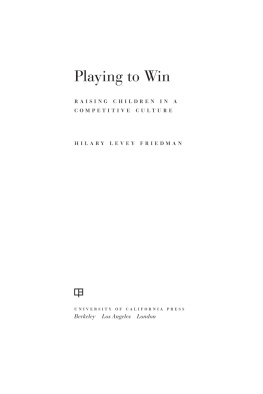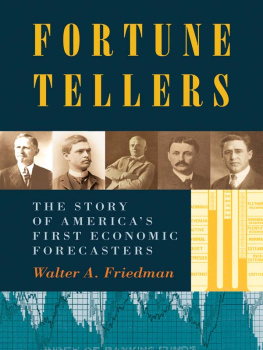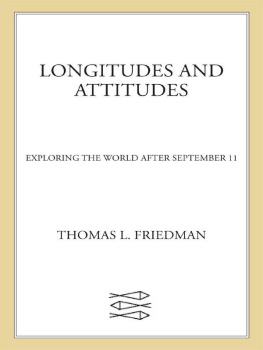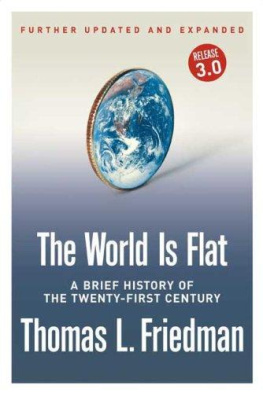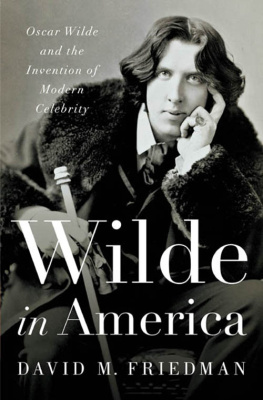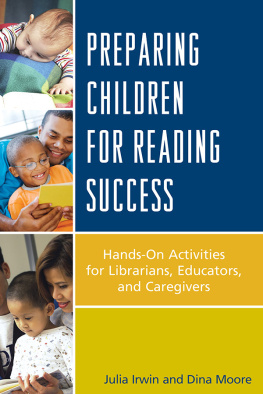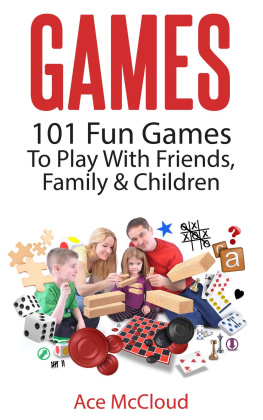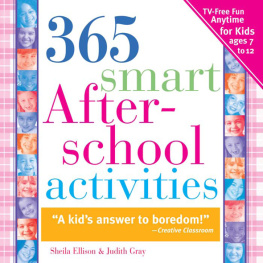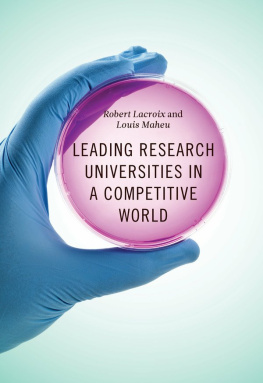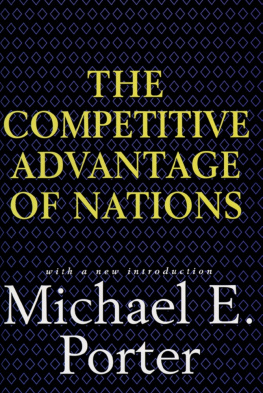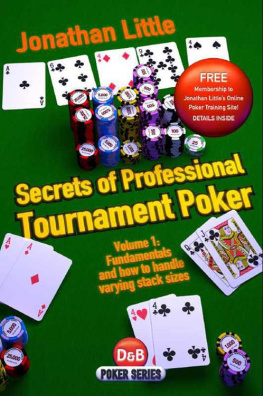Friedman - Playing to win: raising children in a competitive culture
Here you can read online Friedman - Playing to win: raising children in a competitive culture full text of the book (entire story) in english for free. Download pdf and epub, get meaning, cover and reviews about this ebook. City: United States, year: 2016, publisher: University of California Press, genre: Children. Description of the work, (preface) as well as reviews are available. Best literature library LitArk.com created for fans of good reading and offers a wide selection of genres:
Romance novel
Science fiction
Adventure
Detective
Science
History
Home and family
Prose
Art
Politics
Computer
Non-fiction
Religion
Business
Children
Humor
Choose a favorite category and find really read worthwhile books. Enjoy immersion in the world of imagination, feel the emotions of the characters or learn something new for yourself, make an fascinating discovery.
- Book:Playing to win: raising children in a competitive culture
- Author:
- Publisher:University of California Press
- Genre:
- Year:2016
- City:United States
- Rating:5 / 5
- Favourites:Add to favourites
- Your mark:
- 100
- 1
- 2
- 3
- 4
- 5
Playing to win: raising children in a competitive culture: summary, description and annotation
We offer to read an annotation, description, summary or preface (depends on what the author of the book "Playing to win: raising children in a competitive culture" wrote himself). If you haven't found the necessary information about the book — write in the comments, we will try to find it.
Friedman: author's other books
Who wrote Playing to win: raising children in a competitive culture? Find out the surname, the name of the author of the book and a list of all author's works by series.
Playing to win: raising children in a competitive culture — read online for free the complete book (whole text) full work
Below is the text of the book, divided by pages. System saving the place of the last page read, allows you to conveniently read the book "Playing to win: raising children in a competitive culture" online for free, without having to search again every time where you left off. Put a bookmark, and you can go to the page where you finished reading at any time.
Font size:
Interval:
Bookmark:

Beautifully written, relentlessly insightful, and methodologically innovative, Playing to Win expertly captures the perspectives of parents and children regarding the importance of after-school activities for socialization and childhood in contemporary American society. Hilary Levey Freidman has produced a sociological gem.
William A. Corsaro, author of The Sociology of Childhood
Hilary Levey Friedmans Playing to Win is an essential social science volume that transcends the boundary between scholarship and popular critique. Levey Friedman successfully explains how upper-middle-class Americans think about their childrens engagement in serious leisure: competitive chess, dance competitions, and youth soccer. Listening carefully to both parents and children, she reveals the tensions and contradictions, benefits and drawbacks of intense competitions, and provides a perspective necessary for researchers who examine child development and for parents who wish to raise happy, healthy children.
Gary Alan Fine, author of With the Boys: Little League Baseball and Preadolescent Culture and Gifted Tongues: High School Debate and Adolescent Culture
The world of twenty-first-century childhood has found its superb interpreter. With sparkling arguments and fascinating evidence, Hilary Levey Friedmans Playing To Win introduces us to one of Americas most remarkable contemporary innovations: the proliferation of organized, competitive after-school activities. An important contribution to the sociology of culture and inequality.
Viviana A. Zelizer, author of Pricing the Priceless Child: The Changing Social Value of Children
Hilary Levey Friedman has managed to convince numerous upper-middle-class parents and their children to pause in their mad dash between extracurricular activities to explain why they have chosen this lifestyle. Using information from detailed interviews across a variety of activities, she provides a revealing account of the motivations that lie behind the dramatic rise in competitive childrens activities. This fascinating book forms a key part of an emerging body of research that links the increase in time devoted to childcare to parents worries about their childrens economic futures.
Valerie Ramey, Professor and Chair of Economics, University of California, San Diego
Playing to Win
RAISING CHILDREN IN A
COMPETITIVE CULTURE
HILARY LEVEY FRIEDMAN

UNIVERSITY OF CALIFORNIA PRESS
BerkeleyLos AngelesLondon
University of California Press, one of the most distinguished university presses in the United States, enriches lives around the world by advancing scholarship in the humanities, social sciences, and natural sciences. Its activities are supported by the UC Press Foundation and by philanthropic contributions from individuals and institutions. For more information, visit www.ucpress.edu.
University of California Press
Berkeley and Los Angeles, California
University of California Press, Ltd.
London, England
2013 by The Regents of the University of California
Library of Congress Cataloging-in-Publication Data
Friedman, Hilary Levey, 1980
Playing to win : raising children in a competitive culture / Hilary Levey Friedman.
pages cm
Includes bibliographical references and index.
ISBN 978-0-520-27675-8 (hardback) ISBN 978-0-520-27676-5 (paperback)
eISBN 9780520956698
1. Competition (Psychology) in children.2. Student activities.3. After-school programs.4. Sports for children.5. Parenting.6. Child development.I. Title.
BF723.C6F75 2013
306.874dc232013021947
Manufactured in the United States of America
22 21 20 19 18 17 16 15 14 13
10 9 8 7 6 5 4 3 2 1
In keeping with a commitment to support environmentally responsible and sustainable printing practices, UC Press has printed this book on Rolland Enviro100, a 100% post-consumer fiber paper that is FSC certified, deinked, processed chlorine-free, and manufactured with renewable biogas energy. It is acid-free and EcoLogo certified.
For my Family
Past, Present, and Future
Contents
Preface
ENTER TO GROW IN WISDOM
I have a favorite gate.
Dexter Gate is one of the walking entrances into Harvard Yard off Massachusetts Avenue. Across the street from Harvard Book Store it proclaims, Enter to Grow in Wisdom.
I first walked through the quiet, darkened archway of Dexter Gate as a gawky seventeen-year-old, a recently admitted student visiting campus for the first time from a world away, my hometown in the suburbs of Detroit. At that time I thought anything was possible in the world. I thought that being a college student meant endless opportunity, kindred spirits, and a level playing field. On most counts, I was right.
However, during the first weeks of my freshman year I quickly learned that there was much I did not know. People living in my dorm had gone to historic high schools that I had never heard of. On campus many of them seemed to know each other through some magical network that I was lucky to realize even existed, given how removed I was from it. I did not attend a nationally known high school; I did not know what crew was; and I did not have any family connections to the university, or to any Ivy League school, for that matter. In fact, when I called my father to tell him I had been admitted to Harvard, he said, But only rich people and the Kennedys go there!
My first semester I stumbled upon a sociology class. Having never considered studying anything besides history or government before, I was quite taken by this new-to-me social science. That course on social stratification helped me make sense of the new community I was suddenly part of by exposing me to research on class, status, and prestige.
Fourteen years later, I am still trying to make sense of the world using the sociological tools I learned about in that class. After graduation I left Harvard for other Ivy-covered campuses, where I studied parental aspirations for their children. During that time I wrote a dissertationthe basis for this bookon competitive after-school activities (specifically chess, dance, and soccer) in which I link parental anxieties about their elementary schoolage childrens futures, especially anxiety about the increased importance of educational credentials, to their parenting behavior and strategies in the present.
At heart Playing to Win is a story about social reproduction. I am interested in how everyday parental decisions impact the social structure across generations. My research shows one way that these practices have been institutionalized: through the professionalization of childrens competitive after-school activities.
In contemporary sociology the question of how social reproduction occurs is often approached from the bottom up,
My findings on childrens participation in competitive after-school activities provide a small but revealing window into how social reproduction happens as parents actively strategize about child-rearing practices. Training a lens primarily on the affluent middle class helps us understand how and why decisions made during childhood might have long-term consequences for future credentials acquisition and careerswhich in turn deepens our understanding of how less advantaged parents can leverage cultural activities to help their children.
I should know because I didnt grow up like most of the children I studied. I never played travel soccer, nor did I play on any athletic team. I took dance but never participated in a competition. And I never even learned how to play chess, so forget about playing in a tournament. In fact, I never competed in any activity in an organized way before middle school, and even then I competed only in the school-sponsored activities of reading and public speaking competitions. I was definitely a competitive child and thrived in any high-stakes environment, especially in educational settings, but not in the way the kids I study do today.
Next pageFont size:
Interval:
Bookmark:
Similar books «Playing to win: raising children in a competitive culture»
Look at similar books to Playing to win: raising children in a competitive culture. We have selected literature similar in name and meaning in the hope of providing readers with more options to find new, interesting, not yet read works.
Discussion, reviews of the book Playing to win: raising children in a competitive culture and just readers' own opinions. Leave your comments, write what you think about the work, its meaning or the main characters. Specify what exactly you liked and what you didn't like, and why you think so.

